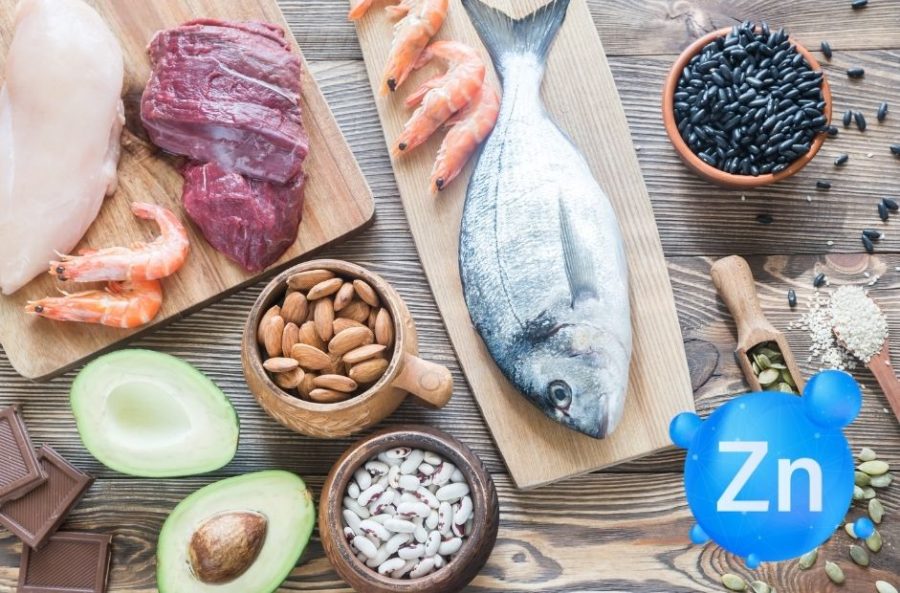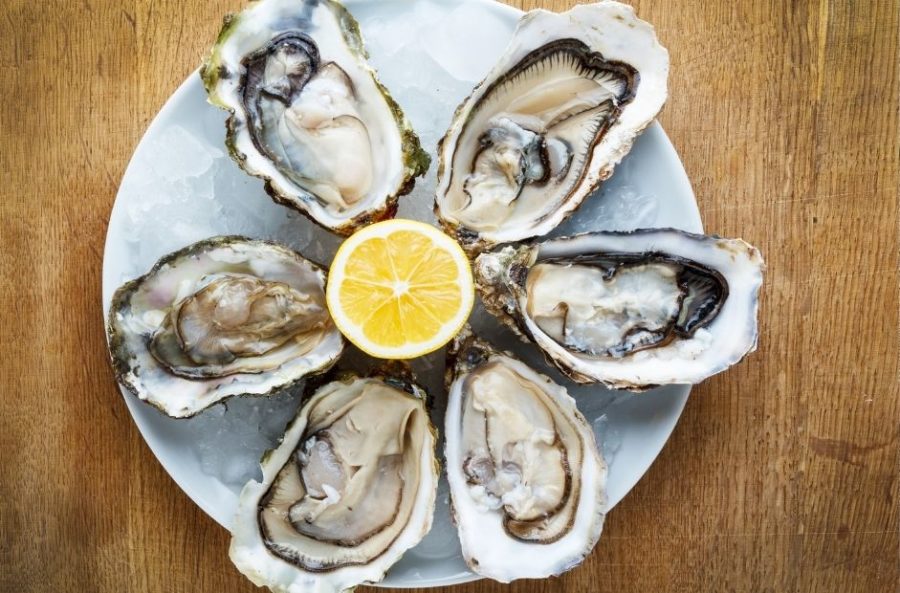Zinc is an essential nutrient that protects our bodies from the damaging effects of oxidative stress. It helps maintain a healthy immune system, supports your metabolism and fertility, and supports bone strength. But zinc is not all sunshine and rainbows; it does have some possible negative side-effects like interfering with absorption of copper or iron, or if too much is found in the body it can cause nausea. Lets get down to what you should know about the benefits of zinc and making sure your zinc levels are adequately covered.
Table of Contents
What Is Zinc?
Zinc is a mineral found in every cell of the human body. It is also found in abundance in most foods. Zinc has a wide range of important functions within our physiological systems. It is essential for hormone, enzyme and immune system production. Zinc also works with other minerals in the body to support the normal activity of over 300 enzyme systems. Also, zinc is involved in maintaining your sense of taste, smell and sight.
Signs of Zinc Deficiency?
Healthy people should not suffer from zinc deficiency because it is abundantly available in most foods. However, there are people who may be lacking zinc in their diets. Vegetarians and vegans may need to pay close attention to their sources of zinc. This is because zinc is found mostly in animal products. Also, people who take medications that inhibit the absorption of zinc by the body should be sure that they are getting enough supplemental zinc.
Benefits of Adequate Zinc Levels
Supports Immune Function: Zinc is an essential component of the respiratory and immune systems. This means that if you don’t have enough zinc, your immune system will not function properly, and you will be more susceptible to infectious diseases. Studies on zincs effect on the immune system are easy to find online as many have been conducted.
Zinc Supports Digestive Health: Zinc is necessary for the digestive process in mammals, including humans. Zinc also supports healthy intestinal flora and boosts the activity of enzymes such as amylase (the saliva-producing enzyme) and lipase (the enzyme that breaks down fats).
Powerful Antioxidant: Zinc is a powerful antioxidant that helps prevent free radicals from damaging the cells, tissues and organs of the body.
Supports Normal Metabolic Functions: Zinc plays an important role in the normal function of the metabolic pathways. Zinc is required for the activity of over 300 enzymes and helps maintain healthy blood sugar levels by supporting the insulin system.
Supports Fertility: Zinc has been shown to help boost fertility in women and increase sperm count in men.
Stronger Bones: Zinc is needed for the formation and maintenance of bones and teeth, as well as the growth and repair of nerves and muscles.
Hair Loss: Hair loss is a sign that your body is low on zinc. It can also be caused by an infection or hormone deficiency.
Foods High in Zinc That You Should Be Eating
Oysters: Oysters are rich in zinc and contain approximately 15 mg of zinc per serving, or 120 times more than your daily recommended intake. Oysters are also a good source of B12 and iron. Shellfish are great foods to make sure you receive the benefits of zinc.
Grass Fed Beef: Grass-fed beef is considerably richer in zinc compared to grain-fed beef. 100 grams of grass-fed beef can provide around 2.2 mg of zinc, which is about 25% of the recommended daily intake.
Cashews: Cashews are one of the best nut foods that provide large amounts of zinc. A 100 gram serving provides around 17 mg of zinc, which is more than the daily recommended intake.
Eggs: Eggs are a good source of zinc, especially the yolk. 100 grams of eggs can provide around 1.5 mg of zinc, which is close to 20% of the recommended daily intake.
Almonds: Almonds are a rich source of many nutrients, including zinc. They contain over 40 percent protein and only 2 percent fat per serving, which makes them a healthy snack or addition to salad or breakfast smoothie. A 100 gram serving provides over 3 mg of zinc.
Chickpeas: Chickpeas are a high protein legume that is a good source of zinc. One serving can provide around 2.5 mg of zinc, or 20% of the recommended daily intake.
Chicken: Chicken breast meat is a good source of zinc, especially in the dark meat. 100 grams can provide up to 1.9 mg of zinc, which is close to the recommended daily intake.
Supplemental Zinc?
If you’re struggling to eat enough foods with zinc then consider taking a zinc supplement. The daily recommended dose of zinc for adult men and women is around 15 mg per day, and for children it’s half of that. Most people can achieve these levels by eating a variety of foods each day, but this can be difficult if you’re on a restricted diet. If you’re worried about not getting enough zinc from your diet, then as well as eating as many foods with zinc as possible try taking 25-50mg once or twice per day. The benefits of zinc are far and wide and it should be highly considered in a diet for overall optimal health.
Other articles like the benefits of apple cider vinegar may intrigue you!





